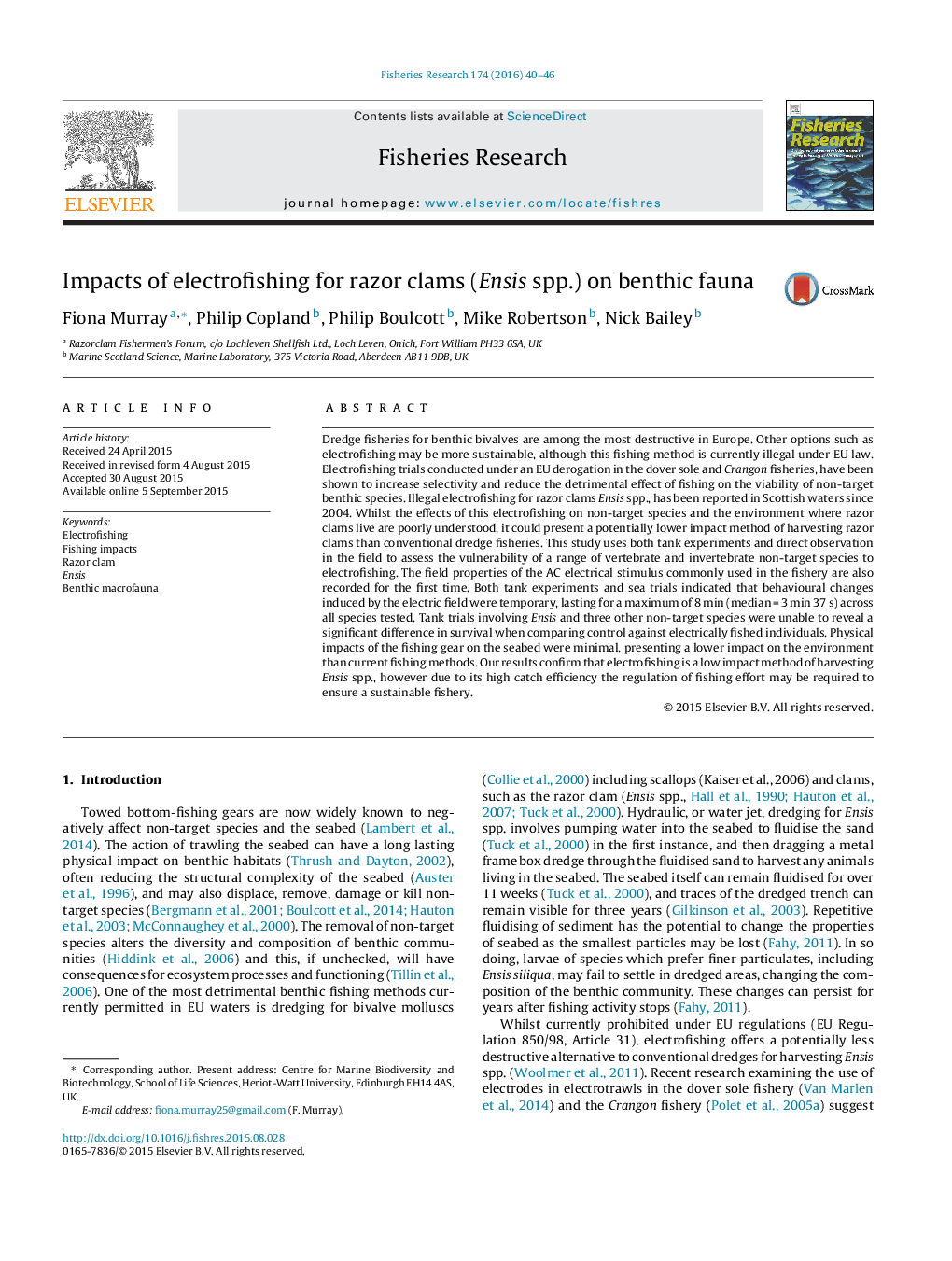| کد مقاله | کد نشریه | سال انتشار | مقاله انگلیسی | نسخه تمام متن |
|---|---|---|---|---|
| 6385558 | 1626795 | 2016 | 7 صفحه PDF | دانلود رایگان |

- Electrofishing is a potentially low impact method of harvesting razor clams.
- The impact on the seabed is minimal in comparison to dredge and trawl fisheries.
- Immediate effects are non-lethal and effects on invertebrate behaviour are short term.
Dredge fisheries for benthic bivalves are among the most destructive in Europe. Other options such as electrofishing may be more sustainable, although this fishing method is currently illegal under EU law. Electrofishing trials conducted under an EU derogation in the dover sole and Crangon fisheries, have been shown to increase selectivity and reduce the detrimental effect of fishing on the viability of non-target benthic species. Illegal electrofishing for razor clams Ensis spp., has been reported in Scottish waters since 2004. Whilst the effects of this electrofishing on non-target species and the environment where razor clams live are poorly understood, it could present a potentially lower impact method of harvesting razor clams than conventional dredge fisheries. This study uses both tank experiments and direct observation in the field to assess the vulnerability of a range of vertebrate and invertebrate non-target species to electrofishing. The field properties of the AC electrical stimulus commonly used in the fishery are also recorded for the first time. Both tank experiments and sea trials indicated that behavioural changes induced by the electric field were temporary, lasting for a maximum of 8 min (median = 3 min 37 s) across all species tested. Tank trials involving Ensis and three other non-target species were unable to reveal a significant difference in survival when comparing control against electrically fished individuals. Physical impacts of the fishing gear on the seabed were minimal, presenting a lower impact on the environment than current fishing methods. Our results confirm that electrofishing is a low impact method of harvesting Ensis spp., however due to its high catch efficiency the regulation of fishing effort may be required to ensure a sustainable fishery.
Journal: Fisheries Research - Volume 174, February 2016, Pages 40-46